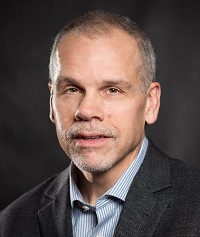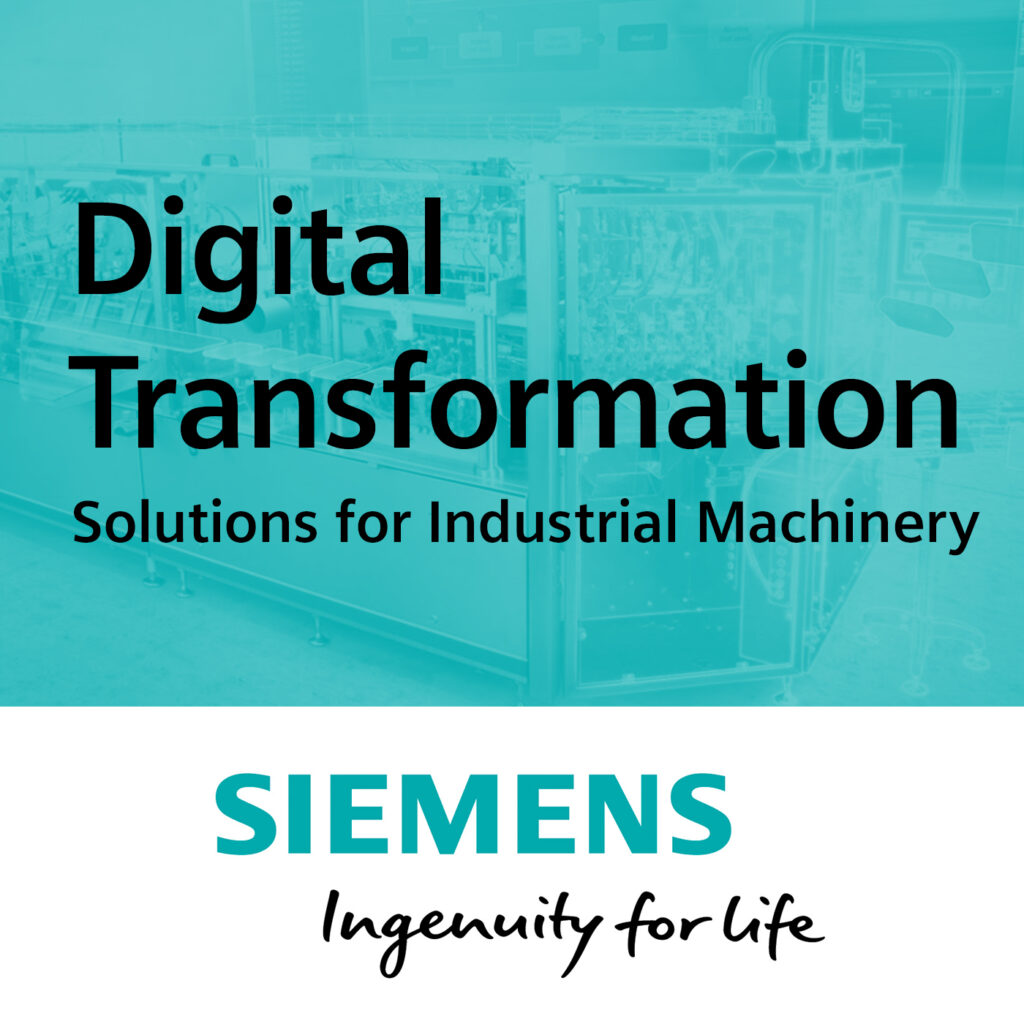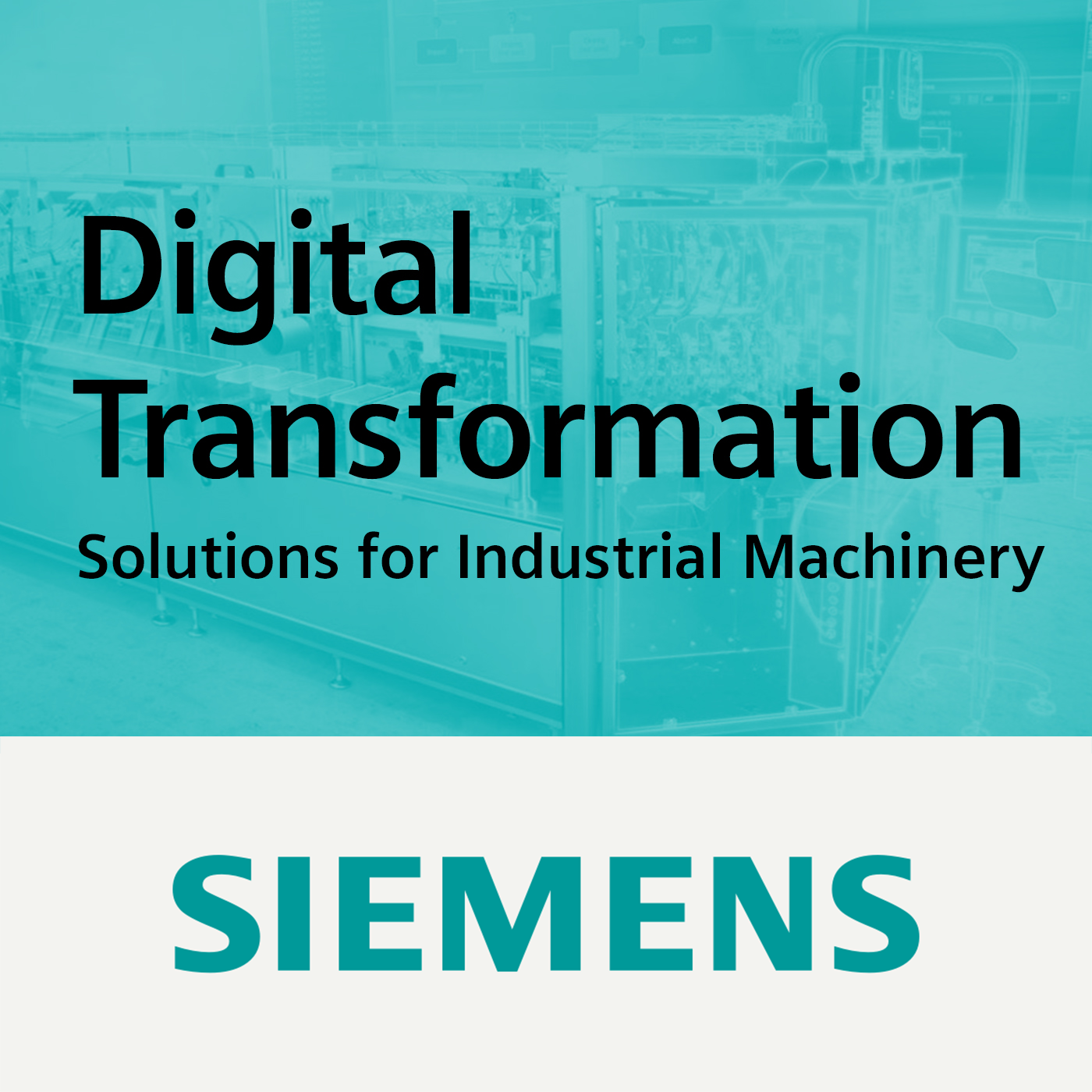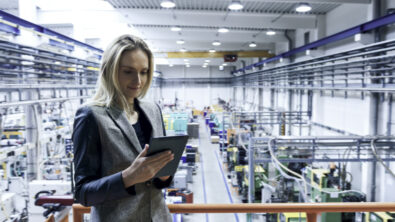Podcast series: Advanced machine engineering (Part 4) – managing the bill-of-materials

Summary
As we’ve learned throughout this podcast series, industrial machinery manufacturers have seen groundbreaking technological advancements in the areas of design and machine simulation.
In the first three podcasts, we talked about the evolution of technology within the machinery industry, key trends that continue to shape the industry today, and we have also introduced the Advanced Machine Engineering solution at a high level by describing two of the three key differentiators: multi-disciplinary design and virtual machine simulations & commissioning.
Today, in our final podcast of the series, Bill and I are discussing the third key differentiator of the Advanced Machine Engineering solution – multi-disciplinary Bill of Material and configuration management.
Bill Davis is the Director of Industrial Machinery & Heavy Equipment Solutions at Siemens Digital Industries Software, working to help industrial machinery customers and heavy equipment customers improve innovation and profitability through the application of the Siemens portfolio. His background is in automation, converting, and packaging machinery. His 30 years of experience in engineering and management positions have shaped how he helps their customers and their go-to-market strategy.
So, listen to Episode 4 of the Siemens Podcast on Advanced Machine Engineering, to learn how to leverage your proprietary data to create a digital thread approach to engineering and also create a competitive advantage.
Questions I ask:
- What is a managed environment and why should it be important to the machine builders and their suppliers? (02:15)
- Is complexity the only challenge around this topic of data management, or are there other areas that we need to be concerned with, as well? (07:31)
- How can Advanced Machine Engineering solution help solve these challenges? (10:25)
- Before we end this podcast, could you quickly summarize the main advantages of the Advanced Machine Engineering solution and why it should be considered by our listeners? (14:58)
In this episode, you will learn:
- The Configure to Order approach. (03:48)
- The Engineer to Order approach. (04:46)
- The importance of having a Bill of Material that represents the entire machine. (05:57)
Connect with Bill:
Industrial machinery in manufacturing is continuing to witness unparalleled developments in state-of-the-art technologies. It is an inspiring effort to design, validate and manage modern manufacturing and assembly operations for achieving superior value while optimizing costs.
In our fourth and final podcast of this series on advanced machine engineering, we are discussing another differentiator of the advanced machine engineering solution, which is allowing machine manufacturers the ability to create a multi-disciplinary bill-of-materials (BOM) and a configuration management environment. This approach makes it possible to leverage your proprietary data in creating a digital thread approach to engineering while generating a competitive advantage.

For this entire podcast series, we have been privileged to gain insight from our special guest and engineering expert, Bill Davis, Director of Industrial Machinery and Heavy Equipment Solutions at Siemens Digital Industry Software. His 30 years of experience in engineering and operations management includes more than 20 years in industrial machinery.
Our previous three podcasts took a deep dive into multi-disciplinary design, virtual machine simulation and commissioning, and multi-disciplinary BOM and configuration management. In this podcast, we take a more in-depth look at multi-disciplinary BOM and configuration management and why it’s important for our listeners. We are addressing the question: what is a managed environment, and why should it be necessary to the machine builders and their suppliers?
So, in building machines, there is a configured-to-order process of menu selection for different components and subcomponents, and assemblies that you choose, based on a set of criteria per the customer’s requirements. The bill-of-materials is a compilation of different sub-assemblies working together with its partner, regardless of what is chosen. Much discipline is required from a machinery builder to adopt the configured-to-order; however, that’s the shortest delivery schedule timeframe because it doesn’t require engineering work.
Commonly, an engineer-to-order approach utilizes the ability to break down machine design into differently affected sub-assemblies or modules, while retaining interface points in isolation, instead of designing a new machine. However, this process includes one or more types of sub-assemblies, including the building of a completely new machine.
It’s important to identify or remove the mechanical and electrical issues – keeping those separate in the bill-of-materials, due to complexity, and the integration of mechanical, electrical and software solutions, with the bill-of-materials including everything – capabilities, features, functionality and components. It represents the entire machine and not merely different disciplines.
The bill-of-materials assists in managing everything in a single environment while understanding all options and variants with the ability to integrate requirements for project and change management and to maintain the bill-of-materials throughout the product life cycle.
To learn more, listen to this last podcast with Bill Butcher and Bill Davis, discussing the bill-of-materials for advanced machine engineering.
Also, you can access this podcast via Apple, Stitcher, Spotify, Castbox, TuneIn or Google.
Listen to podcast01, podcast02 and podcast03 from this series.
About our expert:
Bill Davis is the acting Industrial Machinery and Heavy Equipment Industry leader for Siemens Digital Industries Software. His experience and insights have been acquired from a career spanning 30 years in engineering and operations management with machinery and heavy equipment companies. Bill holds a master’s degree in Business Administration from Marquette University, with a concentration in Operations Management and Strategic Marketing, as well as a Bachelor of Science degree in Mechanical Engineering from Milwaukee School of Engineering.
This is the final podcast in this series on advanced machine engineering. Look for subsequent blogs portraying transcripts from these podcast presentations.

Digital Transformation Podcast
The Digital Transformation: Solutions for Industrial Machinery Podcast by Siemens Digital Industries explores the advantages of smart manufacturing, a digitalized product development strategy and the solutions it offers for the Industrial Machinery industry.

Digital Transformation Podcast
The Digital Transformation: Solutions for Industrial Machinery Podcast by Siemens Digital Industries explores the advantages of smart manufacturing, a digitalized product development strategy and the solutions it offers for the Industrial Machinery industry.


